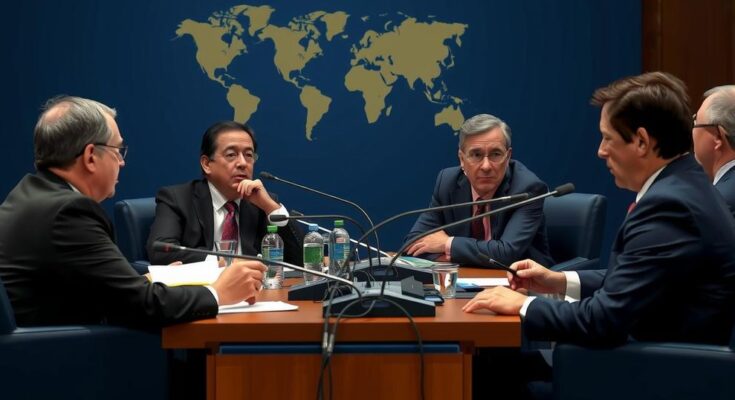The COP29 climate talks in Baku concluded with a contentious agreement on climate finance, but immediately faced backlash from countries like India and Cuba, citing the agreed $300 billion per year amount as inadequate. This reflects ongoing dissatisfaction with the negotiation process and insufficient commitments from wealthier countries, complicating global climate action efforts.
Baku (AFP) – In a decisive turn of events during climate negotiations, a global climate finance deal was finalized late Sunday morning amid mounting tension and criticism. After two weeks of arduous negotiations marked by sleepless nights for delegates, the agreement was sealed at almost 3:00 am by Azerbaijan’s COP president, Mukhtar Babayev, who proclaimed that the deal had been adopted. However, moments after the gavel struck, discontent was voiced by several countries, notably Cuba and India, highlighting the ongoing dissatisfaction with the deal’s provisions.
At the heart of the discontent was the agreed amount of $300 billion annually, which is to be allocated from wealthier nations to support poorer nations severely impacted by climate change. India’s envoy expressed that this figure was “abysmally low,” indicating that significant concerns remained unaddressed. The vocal disappointment from these countries reflected deeper frustrations with both the negotiation process and the outcomes, complicating efforts for unified global action against climate change.
Despite the challenges, the dynamics within the conference were noteworthy. High-level discussions featured moments of collaboration between delegates from the United States and China, while Panama’s representative criticized wealthy nations for insufficient commitments. Azerbaijan’s handling of the conference, despite being a controversial oil and gas exporter, also drew significant attention, particularly following President Ilham Aliyev’s opening remarks, which underscored the tension between climate initiatives and fossil fuel reliance.
Although the deal marked a significant achievement, the immediate backlash indicates that unresolved issues remain. With climate activists expressing their disapproval and diplomatic tensions still simmering beneath the surface, the road ahead for substantial climate action appears fraught with challenges.
Climate negotiations have garnered significant attention in recent years as nations strive to contend with the escalating impacts of global warming. With 2023 expected to be a record-breaking year in terms of heat levels, the urgency for coherent climate finance mechanisms has intensified. COP29, convened in Azerbaijan, served as a critical platform for addressing financial support mechanisms intended for vulnerable countries facing the harsh realities of climate change. However, the contentious nature of the negotiations has led to differing viewpoints among nations, particularly regarding the adequacy of financial commitments from wealthier countries. The backdrop of the conference also included Azerbaijan’s political climate, characterized by authoritarian governance and dependence on fossil fuels, complicating the negotiations with inherent tensions between economic interests and environmental responsibilities. The divergent stances of participating nations have highlighted the complexity of achieving a unified approach to climate change mitigation and adaptation.
In conclusion, the COP29 climate talks in Baku culminated in the adoption of a contentious climate finance agreement that immediately faced strong opposition from multiple nations. While the agreement marks a step forward in mobilizing resources for climate action, the dissatisfaction expressed by various countries underlines the significant challenges that remain in achieving equitable and effective climate solutions. The future of international climate negotiations thus hinges on fostering a more inclusive dialogue and addressing the legitimate concerns of all stakeholders involved.
Original Source: www.rfi.fr




